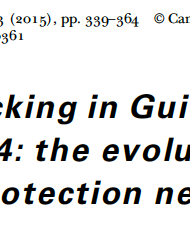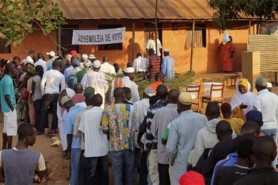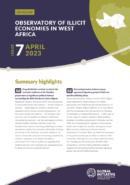Posted on 16 Sep 2015
Guinea-Bissau has been regularly described as a ‘narco-state’. Yet, few studies analyse how drug trafficking has evolved here. Based on extensive interviews in Guinea-Bissau over several years, this paper documents the process. It concludes that using the term ‘narco-state’, where much of the state has little or no capacity, is inappropriate. A better approach is to analyse the actions of key players as an elite protection network. In Guinea-Bissau, that network did not act on its own, but relied on a series of ‘entrepreneurs’ who operated as an interface between traffickers and the elite. While the military as an institution is often said to be in charge of trafficking, exclusive control by high-ranking military personnel within the elite network only occurred relatively late. Senior soldiers’ attempts to provide more than just protection, and to enter the drug market themselves, led to the network’s undoing.
Journal of Modern African Studies, Volume 53, Issue 3 September 2015 , pp. 339-364




